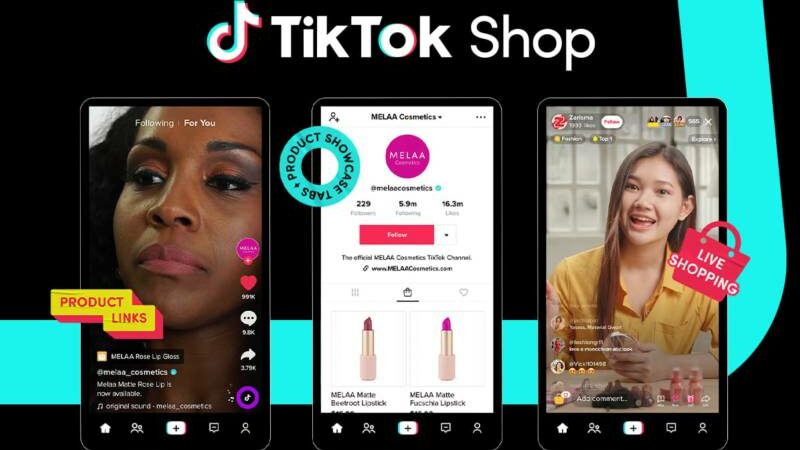With the debut of TikTok Shop, the company’s US e-commerce initiatives have begun in earnest.
After months of testing, the short-form video platform introduced an in-app buying experience in the US on Tuesday, according to a company blog post. TikTok Shop enables users to browse and immediately buy goods that are advertised in a new “Shop” tab, used in live videos, tagged in content that appears on their algorithm-driven For You page, pinned on brand profiles, or otherwise promoted.
The function could open up new revenue sources for creators by putting them in touch with businesses for commission-based marketing alliances. Additionally, “Fulfilled by TikTok,” a programme that manages all of the sellers’ logistics, including storing, packing, and shipping, is available via TikTok.
“With community-driven trends like #TikTokMadeMeBuyIt inspiring people to discover and share the products they love, TikTok is creating a new shopping culture,” the company wrote. “With TikTok Shop, we’re giving people a place to experience the joy of discovering and purchasing new products without leaving the app.”
According to Bloomberg, TikTok wants to treble its offline sales by the end of the year to reach $20 billion.
The app is attempting live e-commerce at a time when other platforms are having difficulty with similar efforts.
In March, Instagram, which is owned by Meta, removed the purchasing link from the app’s navigation bar and stopped allowing users to tag products during livestreams. In October, Facebook also discontinued live shopping. In the meantime, YouTube and Shopify teamed together in 2022 to support the sales of producers’ goods.
Since 2019, Amazon has offered Amazon Live, a streaming platform that enables the sale of goods through real-time videos. Creators can now create sites that combine content and product recommendations to sell to followers for a commission thanks to Amazon Storefront, which launched in 2018.
In some regions of Asia and the UK, TikTok Shop is already available. According to Reuters, Southeast Asia, which has a population of 630 million people, half of whom are under 30, is one of TikTok’s biggest areas in terms of user counts, driving more than 325 million people to the app each month.
However, the platform has struggled to convert its enormous user base into a significant source of regional e-commerce revenue because it is up against tough competition from rivals like Sea’s Shopee, Alibaba’s Lazada, and GoTo’s Tokopedia.
According to figures from consultant Momentum Works, regional e-commerce transactions hit almost $100 billion last year, with Indonesia alone responsible for $52 billion.
Although TikTok increased transaction volume across Southeast Asia to $4.4 billion in 2018 from $600 million in 2021, it trailed well behind Shopee’s $48 billion in regional retail sales in 2022, according to Momentum Works, which spoke with Reuters in June.
America has proven to be even more difficult to penetrate. Since November, TikTok Shop has been in beta. It was officially launched on Tuesday.
The platform has in the past given up on attempts to promote e-commerce. In 2021, TikTok and Shopify tested a live shopping experience, but it was unsuccessful. In 2022, rumours spread that TikTok was abandoning live shopping altogether in the United States and Europe because it was so difficult to engage customers.
The decision to restart e-retail efforts in the US comes as lawmakers are paying more attention to the app. Due to the fact that TikTok is owned by the Chinese business ByteDance, some detractors and an increasing number of US lawmakers from both parties of the aisle consider it to be a national security concern. Although there is currently no proof that the Chinese government has ever acquired the personal information of TikTok users living in the US, some US authorities have expressed concern that the Chinese government may spy on US data via TikTok.
- World Meditation Day 2024: The Emotional Growth Benefits of Mindfulness for Kids - December 21, 2024
- Bryson DeChambeau will make international history in his first tournament of the year - December 21, 2024
- Disney’s ‘Mufasa: The Lion King’: Who Is the Voice of the Legendary King? - December 21, 2024





